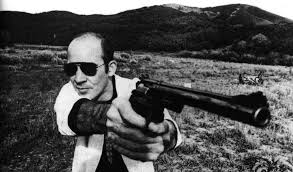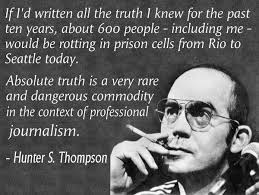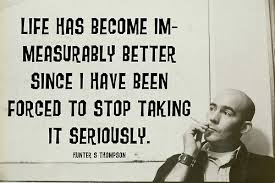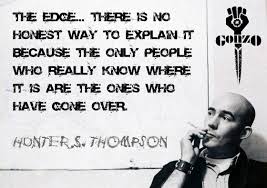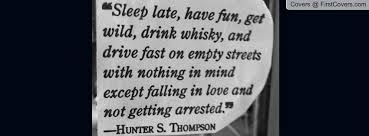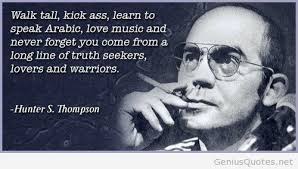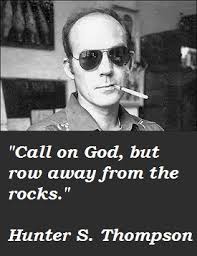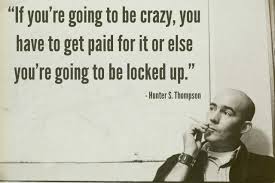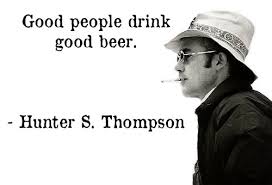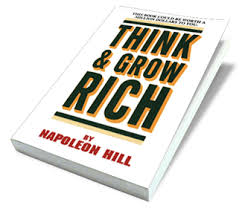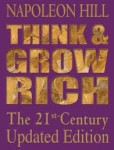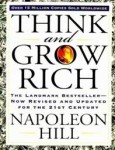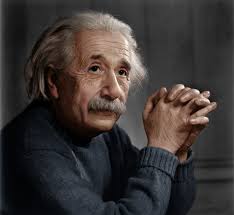 On April 19, 1955, Mrs. Schafer asked her fifth graders at Valley Road School in Princeton, New Jersey, if they had anything to contribute for current events. A smart little girl, sitting at the front, shot up her hand and blurted “Einstein died!” A smart-ass boy, at the back of the class, said “Yeah, and my dad’s got his brain.”
On April 19, 1955, Mrs. Schafer asked her fifth graders at Valley Road School in Princeton, New Jersey, if they had anything to contribute for current events. A smart little girl, sitting at the front, shot up her hand and blurted “Einstein died!” A smart-ass boy, at the back of the class, said “Yeah, and my dad’s got his brain.”
When Albert Einstein died of an abdominal aneurysm the previous day, it was his will that his body be cremated. There was no mention of his brain being kept for scientific study. The story of what happened to Einstein’s brain over the past sixty years, and what today’s science tells us about the cause of his genius, is fascinating.
 Einstein was autopsied by Dr. Thomas Harvey, a pathologist at Princeton University, who removed the brain and kept it without the Einstein family’s knowledge. Dr. Harvey was caught like a grave robber, however worked out a deal with Einstein’s son, getting permission to retain the brain – but only for research, not for profit or show.
Einstein was autopsied by Dr. Thomas Harvey, a pathologist at Princeton University, who removed the brain and kept it without the Einstein family’s knowledge. Dr. Harvey was caught like a grave robber, however worked out a deal with Einstein’s son, getting permission to retain the brain – but only for research, not for profit or show.
Dr. Harvey fixed the brain in celloidin, which is a standard procedure in preserving grey matter, then dissected it into 240 blocks and 1,000 microscopic slides, photographing it extensively. He sent specimens to leading neurologists around the world for their examination and, in time, received most of the pieces back.
 Findings were that Einstein’s brain was somewhat smaller than most male’s – 2.7 pounds vs. 3.0 pounds, however the inferior parietal region which governs mathematical and special reasoning was 15% larger than average. Otherwise, they thought at the time, he was a pretty normal guy – at least anatomically.
Findings were that Einstein’s brain was somewhat smaller than most male’s – 2.7 pounds vs. 3.0 pounds, however the inferior parietal region which governs mathematical and special reasoning was 15% larger than average. Otherwise, they thought at the time, he was a pretty normal guy – at least anatomically.
For twenty-three years Dr. Harvey kept Albert Einstein’s brain in two glass jars in a wooden crate, sometimes in his basement, sometimes in a closet, and for a while behind a beer cooler under his bed. In 1978, it was ‘rediscovered’ and became a media frenzy. That died down and it stayed with Dr. Harvey, travelling here, there, and wherever Dr. Harvey went as his career disappeared into twilight. In 2010, after Dr. Harvey’s death, the brain was transferred to two locations; the U.S. Army’s National Museum of Health and Medicine, and the Mutter Museum in Philadelphia where parts of it are on public display.
But science didn’t forget about Albert Einstein’s brain.
 As techniques advanced, Dr. Harvey loaned it out to researchers. In the 1980’s Professor Marian Diamond of the University of California, Berkley, pursued a theory that the ratio of glial cells in Einstein’s grey matter may be higher than average. Glial cells provide nutritional support for the neurons in the brain which allow the parts to communicate. Sure enough, she found that the glial cells in Einstein’s left inferior parietal area were ‘statistically significant’ and that this high ratio could have contributed to his ability to understand complex scientific problems.
As techniques advanced, Dr. Harvey loaned it out to researchers. In the 1980’s Professor Marian Diamond of the University of California, Berkley, pursued a theory that the ratio of glial cells in Einstein’s grey matter may be higher than average. Glial cells provide nutritional support for the neurons in the brain which allow the parts to communicate. Sure enough, she found that the glial cells in Einstein’s left inferior parietal area were ‘statistically significant’ and that this high ratio could have contributed to his ability to understand complex scientific problems.
Advancing to 1999, a team of researchers at McMaster University in Canada made the shocking discovery that a portion of Einstein’s brain called the parietal operculum region in the inferior frontal gyrus in the frontal lobe was vacant. They also found that part of a bordering region called the lateral sulcus, or the Sylvian fissure, was absent. The researchers speculated that this vacancy, or a missing part of Einstein’s brain actually allowed his thoughts to ‘see’ each other, rather than ‘speak’ which backs up Einstein’s own claim that he was a totally visual thinker, not a verbal communicator.
 And, in a 2013 study published in the credible, medical journal Brain that analyzed Einstein’s corpus callosum – the large bundles of nerves that connect the two cerebral hemispheres – scientists determined that Einstein’s nerve connections were thicker than average which may have contributed to his obvious ability to function at a high plane of thought.
And, in a 2013 study published in the credible, medical journal Brain that analyzed Einstein’s corpus callosum – the large bundles of nerves that connect the two cerebral hemispheres – scientists determined that Einstein’s nerve connections were thicker than average which may have contributed to his obvious ability to function at a high plane of thought.
The actual anatomical reason for Einstein’s genius remains a mystery. Perhaps, as science advances, new techniques will develop and may conclusively explain why a simple patent clerk, with a flawed brain, was able to see himself riding on a light beam through space and then found a way to express the theory of relativity through words.
But here’s how smart Albert Einstein really was.
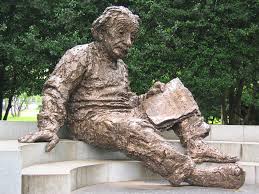 He understood the public’s obsession with his status and he understood human nature. He wanted his body burned, including his brain, so it wouldn’t be a shrine to the macabre. He knew that scientists wanting their own celebrity status – their own moment in the science sun, would pore over his glial cells, his parietal region, his lateral sulcus, his frontal gyrus, and his corpus callosum and would profess that they’d cracked the code of genius.
He understood the public’s obsession with his status and he understood human nature. He wanted his body burned, including his brain, so it wouldn’t be a shrine to the macabre. He knew that scientists wanting their own celebrity status – their own moment in the science sun, would pore over his glial cells, his parietal region, his lateral sulcus, his frontal gyrus, and his corpus callosum and would profess that they’d cracked the code of genius.

